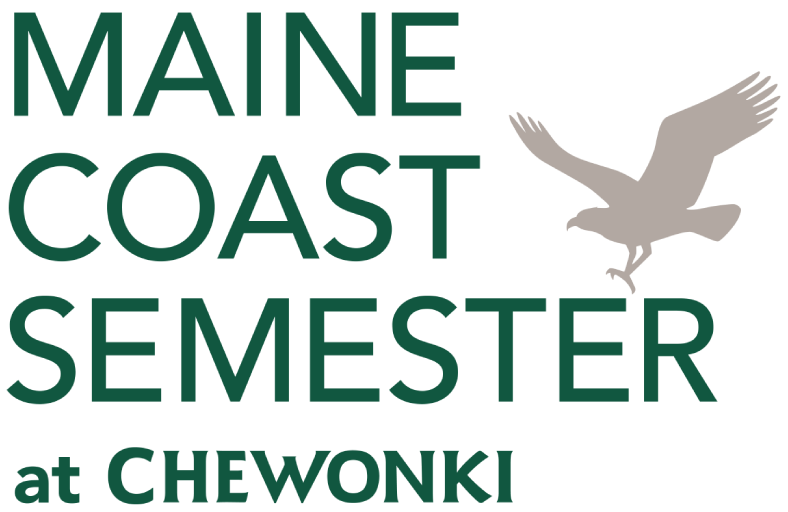Semester schools, in general, are similar to the college-level “junior year abroad” but for high school students. The semester school model provides a boarding-school-like atmosphere with students living in cabins with their peers and attending classes together. At Maine Coast Semester, we view our program as an exciting addition to a student’s secondary school experience, enrichment to the education that our students are getting at their sending schools. We work in partnership with our sending schools to provide an academically rigorous 15 weeks for the students who choose to study with us. Students are drawn to Maine Coast Semester because our school provides an opportunity for a semester of teaching and learning different from, but complementary to, that which they experience in their sending schools. We find that students who attend Maine Coast Semester return to their own high schools with a renewed sense of ownership for their education.
Maine Coast Semester at Chewonki offers students from both public and private schools the opportunity to live and learn with 42 other students from across the United States on 400 acres of land on the coast of Maine. At Maine Coast Semester, all students are known, valued, and feel a sense of belonging. Students are academically challenged and supported in small, hands-on classroom settings with other motivated and engaged students. Students can take advantage of the many opportunities that surround them. With the mountains and the water located near our campus, the possibilities are right in front of them: for example, students can harvest vegetables at the farm, study seasonal changes at their coastal phenology sites, or go for walks on nearby trails. At the end of the day, they retire to their cabins and spend the evening laughing and talking with 6-8 other individuals who have also chosen to experience a semester at Chewonki. As part of the semester experience, students can also take advantage of the resources from our larger organization. A student may find herself feeding animals in the Traveling Natural History Lab, learning about the renewable energy infrastructure of our campus, maintaining trails, harvesting firewood, or practicing farm-to-table culinary skills while preparing delicious weekend meals.
Maine Coast Semester at Chewonki is accredited by the New England Association of Schools and Colleges (NEASC), the nation’s oldest regional accrediting association. NEASC accredits 255 colleges, universities, and other post-secondary institutions and more than 619 private, independent schools in New England. Maine Coast Semester at Chewonki is also approved by the State of Maine Department of Education and we are a member of the Maine and National Associations of Independent Schools.
The fall semester is 14 weeks and the spring semester is 15 weeks in length. All academic classes meet for the equivalent of 3.5 hours per week except science, which meets for approximately 6-7 hours per week, and includes a weekly 4-hour field lab. Academic classes are held Monday through Friday.
Students take 6 academic courses, including Science, English, Human Ecology Seminar, and 3 additional classes from the list of courses below:
| Science | Natural History and Ecology of the Maine Coast* |
| English | Literature and the Land* |
| History | U.S. History AP® U.S. History |
| Mathematics | Algebra II Precalculus Intro to Calculus (Spring Semester Only) AP® Calculus AB AP® Calculus BC |
| World Languages | French: Intermediate, Advanced Spanish: Intermediate, Advanced |
| Studio Arts | Art and the Natural World |
| Co-Curricular | Human Ecology Seminar* Environmental Issues World Religions and the Wilderness |
| Physical Education |
Backcountry Expeditions and Outdoor Education* |
*Required Course. Physical Education is incorporated into the curriculum.
With only 40 students in each of our semesters the class sizes are small. The average class size is eight; the largest class is 14 students.
During the fall semester, PSATs are administered on campus. During the spring semester, AP exams are administered on campus in May, and we typically have students taking U.S. History, AB or BC Calculus.
We encourage students to follow the advice of college counselors at their sending schools when deciding which standardized test(s) to take (PSAT, SAT, ACT, AP). Prep courses for standardized tests are not offered at Maine Coast Semester.
Maine Coast Semester forwards grades and comprehensive teacher comments to parents and schools at the end of the semester. For class-ranking purposes, all our Semester courses should be considered honors level or AP level, as appropriate. It is the family’s responsibility to communicate with the sending school about what Maine Coast Semester courses the school is willing to accept. A 1-credit course at Maine Coast Semester usually translates to a half-credit course at most high schools. If the sending school has questions about our curriculum, please direct them to admissions@chewonki.org.
Sunday through Thursday students have proctored study hours from 7:30 – 9:30 PM. Students typically receive three to four hours of meaningful academic work to do outside of class each day, so they also have to make productive use of their free periods as well as other unscheduled times throughout the week. Learning to balance the academic demands and the many activities of the Chewonki community is a challenge, but the faculty are there to support the students as needed.
Students should not bring any personal Wi-Fi-enabled devices including laptops, phones, iPads, wearable technology, etc. Maine Coast Semester has a computer lab available to all students. There is WiFi available in the classroom buildings and other study spaces including the dining hall. Computers are not allowed in cabins and other designated community spaces.
The majority of the faculty live on campus, so they are available most evenings for academic support. Students are also welcome to make appointments with teachers for extra help as needed. With the small class sizes, teachers often seek out students who they think are in need of some extra support.
Typically six to eight students live in each cabin per semester. Each cabin has a wood stove and it is the responsibility of the students in each cabin to maintain the stove and keep the fire burning during the colder months.
Laundry can be done twice a week: during the assigned cabin time and during open time on the weekends. Laundry detergent is provided.
Weekends are filled with a variety of activities which largely depend on the season. Saturday mornings offer structured programming in outdoor skills and wellness. Saturday afternoons are unstructured, offering optional on- and off-campus activities including hiking, exploring, exercising, birding, games, skating and cross-country skiing (if conditions allow), crafting, and relaxing.
On Saturday night, students prepare dinner and organize an evening activity along with several faculty members. We place a premium on creative, interactive and inclusive events. Past Saturdays have included coffeehouse performance nights, a murder mystery with everyone in character, contra and salsa dancing, an “iron-chef” bakeoff, and flashlight tag, to name a few.
Sundays are typically a day for rest and completing academic work. Students interested in religious services may attend that morning (or on other days as needed).
Students are expected to bring most of their own clothing and outdoor learning gear is provided. For more specifics, please see the Clothing and Equipment List.
Chewonki provides the following outdoor gear (so you do not need to bring the following):
- Personal shelter (tarps, rope, hammocks, mosquito netting for hammocks)
- Backpacking backpack and/or dry bag
- Sleeping pad
- Cross country skis, boots, and poles; snowshoes; paddles; PFDs
- Sleeping bag* *A note on sleeping bags: If you have your own favorite sleeping bag, feel free to bring it. Here are specs for the sleeping bags we’ll send you out on trips with: cold-weather sleeping bag, rated to 15 or 20° F for fall or 0 or 5° F for spring, that stus into a small sack. If you are a “cold sleeper,” you may want a synthetic fleece sleeping bag liner.
For detailed information on what personal clothing to bring, please refer to the FAQ titled “What clothes will I need?”
While Maine Coast Semester does not have organized athletic teams that participate with other schools, there are plenty of opportunities to stay active. Students play frisbee and use our tennis courts; our trails are great for trail running, hiking, snowshoeing, and cross-country skiing; and our waterfront is perfect for canoeing, sea kayaking, and swimming. In the winter months, we often create an ice rink on our frog pond for skating and hockey. Some students bring bikes for riding on trails and local roads. Four hours a week, students are active on work program. Each semester has a multi-day backcountry trip, a weekend dedicated to outdoor leadership and first aid skills, a solo camping experience, and optional weekend hiking trips.
It is best to start by requesting a viewbook from the Maine Coast Semester admissions office and sharing our admissions materials with your advisor, guidance counselor, or dean of studies. Encourage the teachers and administrators you approach to contact the director of admissions if they have any questions. We look forward to speaking with them and telling them about our school. Many students have been the first in their schools to join Maine Coast Semester; the admissions office is always ready to help you with this process.
Yes! Because our school attracts students from across the country, we do not require personal interviews. However, please contact the admissions office if you would like to schedule a visit.
Maine Coast Semester offers need-based aid. We have established a program that is based on grants, which do not have to be repaid. Financial aid is intended to cover the cost of tuition, room, and board. Learn more about our financial aid program.
Students apply before the February 15th in their sophomore year to attend in the Fall or Spring of their junior year.
Students who submit an application before February 15th receive an acceptance decision on March 7th. Students who apply after the February 15 priority deadline will receive an acceptance decision on a rolling basis, typically within a week.
The exact opening and closing days shift slightly each year, but our fall semester typically begins the first week of September, and ends the third week of December. Our spring semester typically begins the last week of January and ends the third week of May.
The curriculum at Maine Coast Semester is designed for high school Juniors, but occasionally a Senior requests to attend. Please contact our Admissions Office for more information. admissions@chewonki.org




